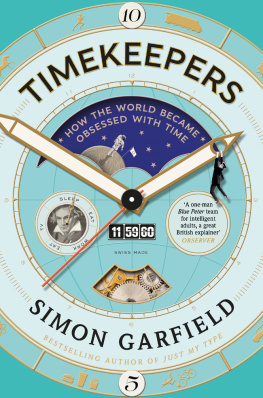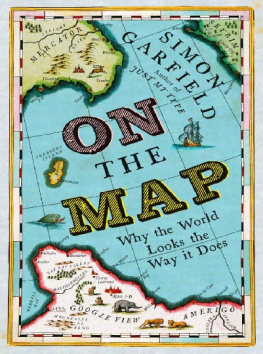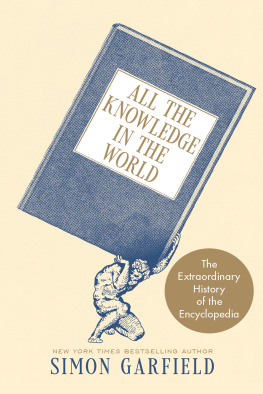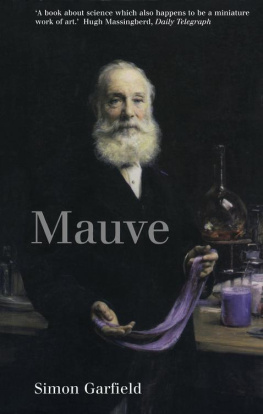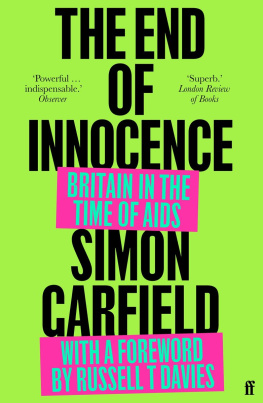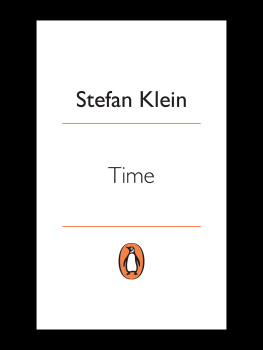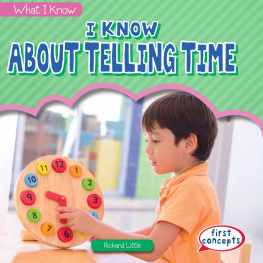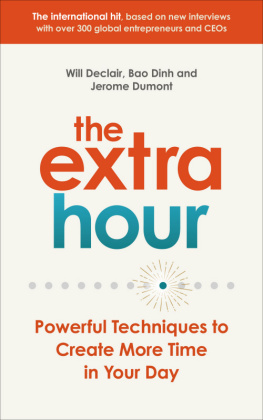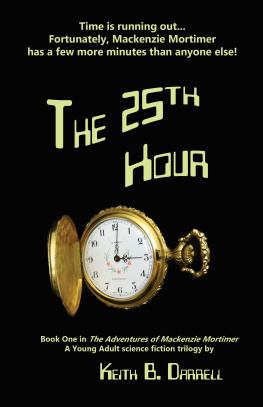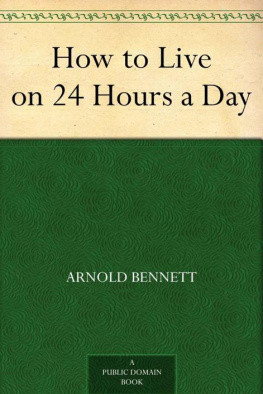Also by Simon Garfield
Expensive Habits
The End of Innocence
The Wrestling
The Nations Favourite
Mauve
The Last Journey of William Huskisson
Our Hidden Lives (ed.)
We Are at War (ed.)
Private Battles (ed.)
The Error World
Mini
Exposure
Just My Type
On the Map
To the Letter
My Dear Bessie (ed.)
A Notable Woman (ed.)
Timekeepers
How the World Became Obsessed with Time
Simon Garfield

Published in Great Britain in 2016 by Canongate Books Ltd,
14 High Street, Edinburgh EH1 1TE
www.canongate.tv
This digital edition first published in 2016 by Canongate Books
Copyright 2016 Simon Garfield
The moral right of the author has been asserted
For picture credits, see
British Library Cataloguing-in-Publication Data
A catalogue record for this book is available on request from the British Library
ISBN 978 1 78211 319 5
eISBN 978 1 78211 320 1
To Ben, Jake, Charlie, Jack and Justine
And to the memory of Rena Gamsa
Alice: How long is forever?
White Rabbit: Sometimes, just one second.
Contents
Introduction:
Very, Very Early or Very, Very Late
We are in Egypt. Not Ancient Egypt, which would be a reasonable place to begin a book about time, but in modern Egypt, an Egypt out of Cond Nast Traveller, with the fine beaches and the tourists at the pyramids and the sun beating down on the Mediterranean. We are sitting at a restaurant above a beach near Alexandria, and at one end of the beach we can see a local fisherman catching something tasty for dinner: a nice red mullet perhaps.
We are on holiday after a punishing year. After our meal we stroll towards the fisherman. He speaks a little English. He shows us his catch not much yet, but hes hopeful. Because we know a little about fishing and opportunity, we suggest he might move to that rock over there, just a little further out, a higher cast than his present position on his old folding stool, and a greater chance of hooking his daily haul of fish faster.
Why would I want to do that? he asks.
We say that with greater speed he could catch more fish, so that he could not only have enough for his dinner, but sell the surplus at the market, and with the proceeds he could buy a better rod and a new icebox for his catch.
Why would I want to do that?
So that you can catch even more fish at greater speed, and then sell those fish, and swiftly earn enough to buy a boat, which means deeper seas and still more fish in record time with those big nets they use on trawlers. In fact, you could soon become a successful trawler yourself, and people would start calling you Captain.
Why would I want that? he asks smugly, annoyingly.
We are of the modern world, attuned to ambition and the merits of alacrity, and so we advance our case with growing impatience. If you had a boat, your haul would soon be of such size that you would be a kingpin at the market, be able to set your own prices, buy more boats, hire a workforce and then, fulfilling the ultimate dream, retire early, and spend your time sitting in the sun fishing.
A bit like I do today?
*
Now let us briefly consider the case of William Strachey. Strachey was born in 1819, and from his schooldays had set his heart on becoming a civil servant. By the mid-1840s he was working in the Colonial Office in Calcutta, where he became convinced that the people of India, and the people of Calcutta in particular, had found a way to maintain the most accurate clocks (the best clocks in India at this time were probably made in Britain, but no matter). When he returned to England after five years away he determined to carry on living his life by Calcuttan time: a valiant move, for this was usually five-and-a-half hours ahead of London time.
William Strachey was the uncle of Lytton Strachey, the eminent Victorian critic and biographer. Lyttons own biographer, Michael Holroyd, has noted how William was among the most eccentric of all the Stracheys, which was really saying something, given the amount of general weirdness ritually favoured by the Strachey clan.
William Strachey lived until his mid-80s, and thus spent more than 50 years in England on Calcuttan time. This meant having breakfast at teatime and a candlelit lunch in the evening, and making decisive calculations regarding train timetables and other routines of daily life, such as shopping and banking hours. But in 1884 it got more complicated still, as Calcuttan time jumped 24 minutes ahead of much of the rest of India, making Stracheys day 5 hours and 54 minutes ahead of London time. Sometimes it was just impossible to tell if he was very, very early or very, very late.
Many of Stracheys friends (not that he had many friends) grew used to this eccentricity, although he severely tried the patience of his family when he bought a mechanised bed at the Paris International Exposition of 1867. The bed came with a clock designed to wake the occupant at an appointed hour by tipping him or her out, and Strachey rigged it up in such a way that it tipped him into his bath. Despite his planning, he was apparently so enraged when he was first woken in this way that he saw no other option but to smash the clock to ensure he wouldnt be tipped up again. According to Holroyd, William Strachey spent his remaining years in galoshes, and shortly before he died he bequeathed his nephew a considerable assortment of coloured underpants.
*
Between the serenity of the fisherman and the madness of Strachey lies the compromised life of us all. Do we want the fishing life or the clock life? We want both. We envy those with a carefree existence but we dont have time to examine it for long. We want more hours in the day but fear wed probably only waste them. We work all hours so that we may eventually work less. We have invented quality time to distinguish it from that other time. We place a clock by our bed but what we really want is to smash it up.
Time, once passive, is now aggressive. It dominates our lives in ways that the earliest clockmakers would have surely found unbearable. We believe that time is running away from us. Technology is making everything faster, and because we know that things will become faster in the future, it follows that nothing is fast enough now. The time zones that so possessed William Strachey are rendered almost obsolete by the perpetual daylight of the Internet. But the strangest thing of all is this: if they were able, the earliest clockmakers would tell us that the pendulum swings at the same rate as it always has, and the calendars have been fixed for hundreds of years. We have brought this cauldron of rush upon ourselves. Time seems faster because we have made it so.
This is a book about our obsession with time and our desire to measure it, control it, sell it, film it, perform it, immortalise it and make it meaningful. It considers how, over the last 250 years, time has become such a dominant and insistent force in our lives, and asks why, after tens of thousands of years of looking up at the sky for vague and moody guidance, we now take atomically precise cues from our phones and computers not once or twice a day but continually and compulsively. The book has but two simple intentions: to tell some illuminating stories, and to ask whether we have all gone completely nuts.
I recently bought the smartphone app Wunderlist. Its designed to sort out and synchronise your to-dos for home, work and everything in between and take a quick peek inside a to-do and swipe down from any app to get a glance of your due to-dos with our Today widget. Buying the app was a tough choice, for there are also apps named Tick Task Pro, Eisenhower Planner Pro, gTasks, iDo Notepad Pro, Tiny Timer, 2Day 2Do, Little Alarms, 2BeDone Pro, Calendar 366 Plus, Howler Timer, Tasktopus, Effectivator and many, many hundreds of others. In January 2016, these Business and Productivity apps the vast majority concerned with time-saving, time management and increased speed and efficiency in all aspects of our lives accounted for a greater share of smartphone apps than Education, Entertainment, Travel, Books, Health & Fitness, Sports, Music, Photos and News, all of which were also vaguely concerned with improving efficiency and getting more done faster. Yes, that name was Tasktopus. How did we arrive at this terrible and exciting place?

